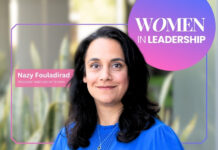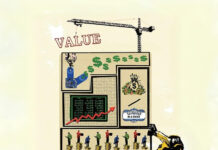By Lauren Noël and Christie Hunter Arscott
Imagine you enter an interview for a job and an executive asks you: “What’s your superpower?” How would you respond? Your answer would require the insight to know how your differentiators contribute value to your prospective employer and fuel your passions at the same time. Knowing your superpower – something that is different about who you are and how you behave that has contributed to your success – is essential for your career journey and your organisation’s growth. Based on recent research by Lauren Noël and Christie Hunter Arscott, discover actions you can take to unleash your signature value add for the benefit of your company.
In our conversations with colleagues around the world who are interviewing for jobs across industries – consumer goods, technology, professional services – we have noticed a growing trend. In the interview process, they have been asked an interesting question: “what’s your superpower?”
We were recently talking to an early career woman who had just joined one of the world’s top employers for millennials. She was talking to us about her experience with her interview for the job. She shared that the only question she was asked during her final interview before the offer was made was: “So, what’s your superpower – what makes you-you?”. We know how important it is to hire the right person.1 We thought it was odd for her not to be asked about her work history, specific accomplishments, or even the expected question about where she saw herself in five years. She then shared that it was arguably the most important question she had ever been asked in an interview. Why? It made her reflect on who she really was – what was it within her that made her tick; what special edge did she have that would make her a great contributor at work?
These conversations got us thinking about our research and work with early career women.2 Imagine you were about to go for an interview for a job that you were excited about and were asked that same question. How would you respond? Your answer would require the insight to know how your differentiators could be used to contribute value to your prospective employer and fuel your passions at the same time. This has nothing to do with being boastful, but rather entails being clear and confident about your signature value add.
Let us make one point clear: Reflecting on your superpowers does not mean, in any way, that in addition to all the other stresses and expectations in your life, that you now need to be Super Woman! To the contrary, instead of trying to be all things to all people, we are simply asking you to think about what makes you-you. What drives you? What unique skills and insights do you have that have served you well over the years? What do you really enjoy doing? Then ask yourself: How can these inner drivers, qualities, and passions be unleashed to produce tangible and unique benefits to your company?
We were in conversations recently during a leadership programme with two colleagues, Professor Linda Hill from Harvard Business School, and Professor Doug Ready from the MIT Sloan School, who co-authored, along with Jay Conger, a highly popular Harvard Business Review article: “Are You a High Potential?”.3 The article is filled with important insights into what traits companies are looking for to have employees placed in their companies’ high potential talent pools. With its organisation-centric perspective, this is a very helpful article for companies. But we believe there’s another part to this story – the employee-centric piece. With that in mind, here are actions rising star women can take as they set out on their career journeys.
A Letter to Early Career Women – What Makes You Different is What Makes You Great
Knowing your superpower – something that is different about who you are, how you behave, how you deal with the world around you, that is a differentiating factor that has contributed to your success thus far – is essential both for your career journey and your organisation’s growth.
How can you optimise your best talents for your company, yet stay true to who you are? This challenge resonates across genders and generations, yet is of heightened importance to you – the early career woman. Research shows that ambition4 and confidence5 dip for a larger percentage of women than men only a few years into a career. As an early career woman, a better understanding of your unique differentiators will help you hone in on opportunities to be yourself, while simultaneously driving value for you and your company.
Get Started Now!
As you navigate your career journey, one message is clear: the road starts with knowing who you are, what you want to achieve, and why that helps your company win. Based on these insights, here are key actions that you can take:
1. Reflect on what has made you successful throughout your life, inside and outside of work. In an effort to get to the root of who you are at your core and understand your signature value add, take the time to reflect on what you love to do and what you are really good at. When you are at your best and time is flying by without you even realising it, what are you doing? Consider what has driven you throughout your life – whether that might be at work, home, sports, or in the community. Your unique differentiator is not just related to a skill you have at your job. It is what makes you successful as a person.
This could go back as far as your earliest years. For example, one successful pharmaceutical executive we interviewed said she gained critical insights about herself when she was in the first grade: “I can remember saying to my teacher, ‘but I don’t want to color inside the circle’. Coloring inside the lines just wasn’t me, and still isn’t!”6
Today, as a business leader, she’s not tentative about exploring possibilities, taking risks, and going for opportunities. What have been the common threads that have made you successful throughout your life? Know this and you could be on the road to uncovering your superpower.
2. Pursue your “out of the box” interests. Don’t be afraid to try different things and take on new challenges. Worst case? You won’t fail, you’ll learn! Explore new paths. As one woman we interviewed said: “A plan is a nice thing to have, but a career is an obstacle course. It’s not a path. There is no straight line.”
Many of the women we talked to said that their career paths took twists and turns. One spent a year in Australia learning to sail, another had a fellowship with the government, others had career switches from sociology to finance or scientist to marketing executive. Often, these diversions turned out to be some of the most rewarding and valuable experiences of their lives.
Take advantage of sabbaticals or sign up for a class that aligns with your natural interests, even if it does not directly relate to your current job. Then, look for common themes. Did you enjoy the interpersonal aspects of an opportunity? Do you have a strong sense of “stick-to-itiveness” to excel at challenging tasks?
3. Seek out networks that will further your strengths and interests. Have you ever met someone with whom you instantly connected? With this person, you feel like your authentic self, they give you energy, and you naturally want to spend more time with them, introduce them to your community of friends and colleagues, and meet others in their network.
To increase the chances of this happening, we suggest you seek out networks that align with and further your interests. For instance, search for an upcoming event where the topic genuinely interests you. Have you always wanted to learn how to code or train for a marathon? Are you interested in mindfulness? Passionate about mentoring girls in your community? Register for an event or get a group together regularly that aligns with your natural passions, feels distinctly “you”, and is not a logistical challenge to attend. More connections and chances to build upon your interests will naturally follow. You’ll be more likely to fuel your network and tap into your authentic passions if you seek out opportunities that you are truly interested in. This sense of community is deeply important as it provides a sense of camaraderie that adds richness and meaning to your life and a valuable sounding board for the variety of challenges you face, including balancing work and family, career switches, difficult projects, and more.
4. Be guided by purpose and passion. When trying to hone in on who you are at your core, we encourage you to explore what you are truly passionate about. One executive we interviewed said: “A millennial woman will not necessarily leave because she’s offered a $10,000 increase. It’s more the opportunity to work on the next meaningful, cutting edge, cool thing. They want to be a part of something bigger than themselves.”
Is there an initiative, big or small, that you could engage with at your organisation or in your community? For example, a women’s group we met at a leading education company ran a Wikipedia edit-a-thon during which the participants learned how to edit Wikipedia pages, a new skill for all. Afterwards, they spent a day building Wikipedia pages for women in education or STEM fields who were previously under represented on Wikipedia. The initiative was a success: The participants learned a new skill and they were highly energised by contributing to the company’s mission of improving the lives of global learners.
Get excited about your future and the future of your company and community, think big, and dive in to lead an initiative that fuels your passions. Along the way, you will likely discover more about what drives you.
5. Articulate why you have been successful and how that benefits your company. Once you know your signature value add, it is essential to be able to communicate how this benefits your company or potential employer. Women from our recent research identified why they have been successful throughout their lives and how this has positioned them to drive value and growth for their organisations.7 As one female attorney said: “A quality that I have is combining imagination with pragmatism. Imagination is what you need if you are going to build out a law practice, which is what I am doing at the global level at the moment. My mandate is to grow this global team. I love building. But in order to build, you need to have imagination.”
Or, remember the risk-taking pharmaceutical executive? She has endless ideas, many of which are shaping the future of healthcare. Her edge that helps her company win? She explained:
“I love anything that is game changing, or redefines a moment in time. What really excites me is always looking for new ways to do things and create value, have impact, and redefine.”
Above all, remember this: In today’s world, what makes you unique is more often than not what makes you valuable to your organisation. Be confident that if you tap into your superpowers that you can generate benefits for you and your company.
About the Authors
 Lauren Noël is the Managing Director of QUEST, a global leadership centre for early career women. In 2017, Lauren was named to the Thinkers50 Radar list of the 30 management thinkers most likely to shape the future of how organisations are managed and led and was shortlisted for the 2017 Thinkers50 Talent Award. She holds an MBA from the MIT Sloan School of Management. She can be reached at lauren@herquest.org.
Lauren Noël is the Managing Director of QUEST, a global leadership centre for early career women. In 2017, Lauren was named to the Thinkers50 Radar list of the 30 management thinkers most likely to shape the future of how organisations are managed and led and was shortlisted for the 2017 Thinkers50 Talent Award. She holds an MBA from the MIT Sloan School of Management. She can be reached at lauren@herquest.org.
 Christie Hunter Arscott is an expert on gender and generational strategies. She is a Rhodes Scholar, World Economic Forum Global Shaper, and Managing Director of QUEST. In 2017, Christie was named to the Thinkers50 Radar list of the 30 management thinkers most likely to shape the future of how organisations are managed and led and she was shortlisted for the 2017 Thinkers50 Talent Award. She can be reached at christie@herquest.org.
Christie Hunter Arscott is an expert on gender and generational strategies. She is a Rhodes Scholar, World Economic Forum Global Shaper, and Managing Director of QUEST. In 2017, Christie was named to the Thinkers50 Radar list of the 30 management thinkers most likely to shape the future of how organisations are managed and led and she was shortlisted for the 2017 Thinkers50 Talent Award. She can be reached at christie@herquest.org.
References
1. How to Hire the Right Person, Adam Bryant, New York Times, https://www.nytimes.com/guides/business/how-to-hire-the-right-person
2. QUEST Special Report: What Executives Need to Know About Millennial Women, Lauren Noël and Christie Hunter Arscott, https://www.herquest.org/inspire_millennial_women.php
3. Are You a High Potential?, Douglas A. Ready, Jay A. Conger, and Linda A. Hill, Harvard Business Review, https://hbr.org/2010/06/are-you-a-high-potential
4. Companies Drain Women’s Ambition After Only 2 Years, Orit Gadiesh and Julie Coffman, Harvard Business Review, https://hbr.org/2015/05/companies-drain-womens-ambition-after-only-2-years
5. The Confidence Gap, Katty Kay and Claire Shipman, The Atlantic, www.theatlantic.com/magazine archive/2014/05/the-confidence-gap/359815/
6. QUEST Special Report: Taking Charge – A Roadmap for a Successful Career and a Meaningful Life for High Potential Corporate Women Leaders, Lauren Noël, https://www.icedr.org/research_taking_charge.php
7. QUEST Special Report: Taking Charge – A Roadmap for a Successful Career and a Meaningful Life for High Potential Corporate Women Leaders, Lauren Noël, https://www.icedr.org/research_taking_charge.php


































